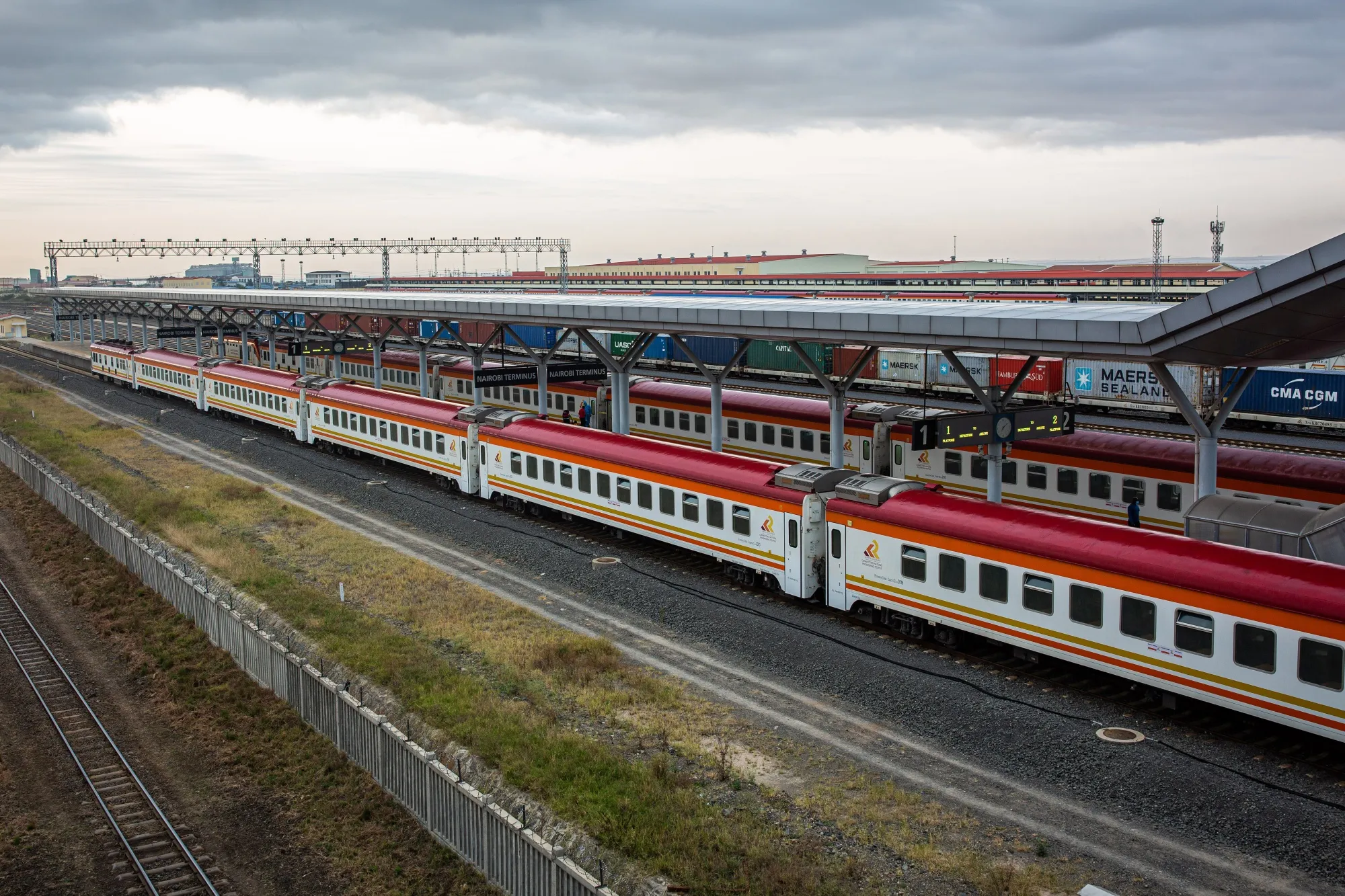
Kenya plans to raise $4 billion by securitising an import levy to extend a China-built railway and is in talks with Etihad Rail to operate freight services on the line, Transport Secretary Davis Chirchir said.
- Kenya plans to raise $4 billion by securitizing an import levy to fund the Standard Gauge Railway (SGR) extension to Kisumu and Malaba.
- The SGR, completed in 2019 for $5 billion, is Kenya’s largest infrastructure initiative, connecting Mombasa to Naivasha through Nairobi.
- The extended rail project aims to link South Sudan, Ethiopia, and the Democratic Republic of the Congo for freight operation viability.
Kenya plans to raise $4 billion by securitising an import levy to extend a China-built railway and is in talks with Etihad Rail to operate freight services on the line, Transport Secretary Davis Chirchir said.
The government will use revenue from its railway development levy, a 2% tariff on imports that generates about 50 billion shillings ($387 million) annually, to finance the Standard Gauge Railway (SGR) extension from Naivasha to Kisumu and Malaba on the Ugandan border, Bloomberg reported.
The $5 billion SGR, completed in 2019, connects Mombasa port to Naivasha through Nairobi and remains Kenya’s largest infrastructure project since independence.
DON’T MISS THIS: This African country may have just gotten its first dollar billionaire
Under the expansion plan, Kenya Railways Corp. will retain responsibility for engineering and maintenance, while private operators will run services.
The government aims to extend the network into South Sudan, Ethiopia, and the Democratic Republic of the Congo to make freight operations more commercially viable.
Etihad Rail, which requires freight volumes of at least 17 million tons annually to justify an investment, is exploring options including transporting about 3 million tons of crude oil each year from Kenya’s northern oilfields.
$2 billion airport upgrade back on track
In a parallel push, Kenya has invited international development lenders to help finance a $2 billion expansion of Nairobi’s Jomo Kenyatta International Airport (JKIA), just nine months after cancelling a deal with India’s Adani Group following the indictment of its founder in the United States.
DON’T MISS THIS: Three major gold producers sign Mali’s new mining code
The government has approached lenders, including China Export-Import Bank, Japan International Cooperation Agency, Germany’s KfW, the European Investment Bank, and the African Development Bank, to finance a new terminal and runway refurbishment. Construction could start before year-end.
Facing rising public debt and seeking alternative infrastructure financing options, the East African nation will also issue a securitised bond worth 175 billion shillings ($1.36 billion) next month for road construction, Transport Minister Davis Chirchir said.
The bond proceeds will repay $530 million in bridge financing already secured from a syndicate including TDB, KCB, and Absa. Half of the bond will be in local currency and half in US dollars.












